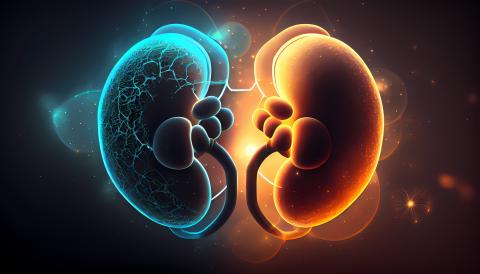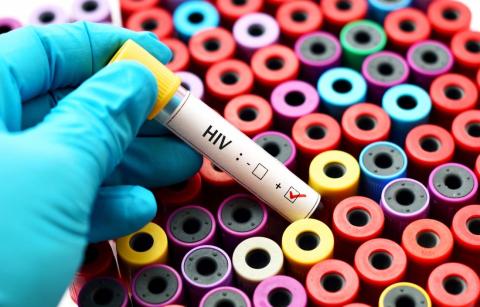Reactions: Cell therapy 'teaches' immune system to tolerate liver transplants, phase 1 trial shows
Currently, when an organ transplant is performed, the patient has to take immunosuppressive drugs to prevent his or her system from rejecting the new organ. These drugs must be taken for life and have numerous side effects. In a phase 1 clinical trial, researchers gave patients receiving a liver transplant regulatory dendritic cells derived from the original donor, with the hypothesis that these cells could 'teach' the recipient's immune system to tolerate the new organ. The research, published in Science Translational Medicine, suggests that this treatment could reduce or even eliminate the need for long-term use of immunosuppressants.

Marcos López Hoyos - trasplante hígado terapia celular EN
Marcos López Hoyos
Scientific Director of the Valdecilla Health Research Institute (IDIVAL), Head of the Immunology Department, and Professor of Immunology at the University of Cantabria-Marqués de Valdecilla University Hospital
This is a very relevant article from a phase 1a/2 trial to look at the clinical utility and immunological monitoring of patients who have received tolerogenic dendritic cells. The use of these cells as a mechanism to induce tolerance (acceptance of the transplanted graft) and reduce the burden of immunosuppression, which causes numerous long-term adverse effects, has been the 'holy grail' in organ transplantation for decades.
This study demonstrates in a series of 16 liver transplant patients the beneficial effect of this treatment. It shows this at the level of safety and through the study of immune cell populations, not only in blood but also in the liver graft, which is where the immune response really takes place. They show a reduction of cells, such as natural killer and CD8+ T cells, with the capacity to cause graft rejection up to one year post-transplant follow-up.
The data support the clinical use of these immune rejection regulatory or suppressor cells in liver transplantation.
Matesanz - Dendríticas (EN)
Rafael Matesanz
Creator and founder of the National Transplant Organisation.
At the present time it can be said that the infusion of different types of immunomodulating cells from the donor, whether living (kidney or liver) or cadaveric (different solid organs), is one of the hot topics in transplant research, both to achieve better tolerance and less organ rejection in the short term and to reduce or eliminate immunosuppressive drugs in the medium and long term and thus achieve immunotolerance, the panacea of transplantation.
The problem is that we do not know which type of cell is best, as well as the pattern of administration. The authors propose the administration of regulatory dendritic cells in one type of transplant, living donor liver transplantation, in a clinical trial in a still preliminary phase in which they have so far proven the safety of the method and have verified that one year later a series of immunological alterations induced by the dendritic cells are maintained, which could be indicative of a reduced need for immunosuppressants or even their withdrawal. The line of work has a certain amount of support from animal experimentation, but logically still lacks the clinical confirmation that would mean being able to effectively withdraw the immunosuppressants without the organ being rejected.
In the meantime, this is a good work in an interesting line of work, but its conclusions are preliminary and will have to be verified with the extension of the trial and future research.
Lillian M. Tran et al.
- Research article
- Peer reviewed
- Clinical trial
- People



